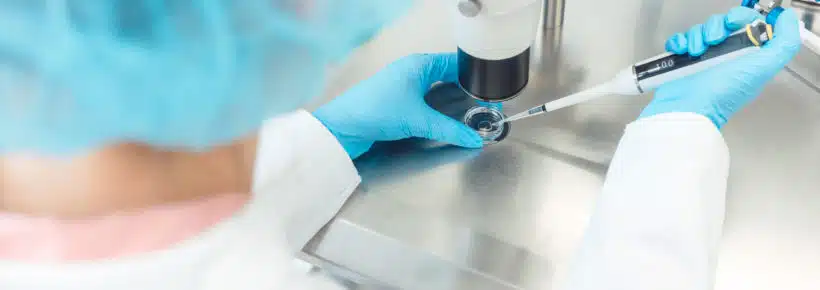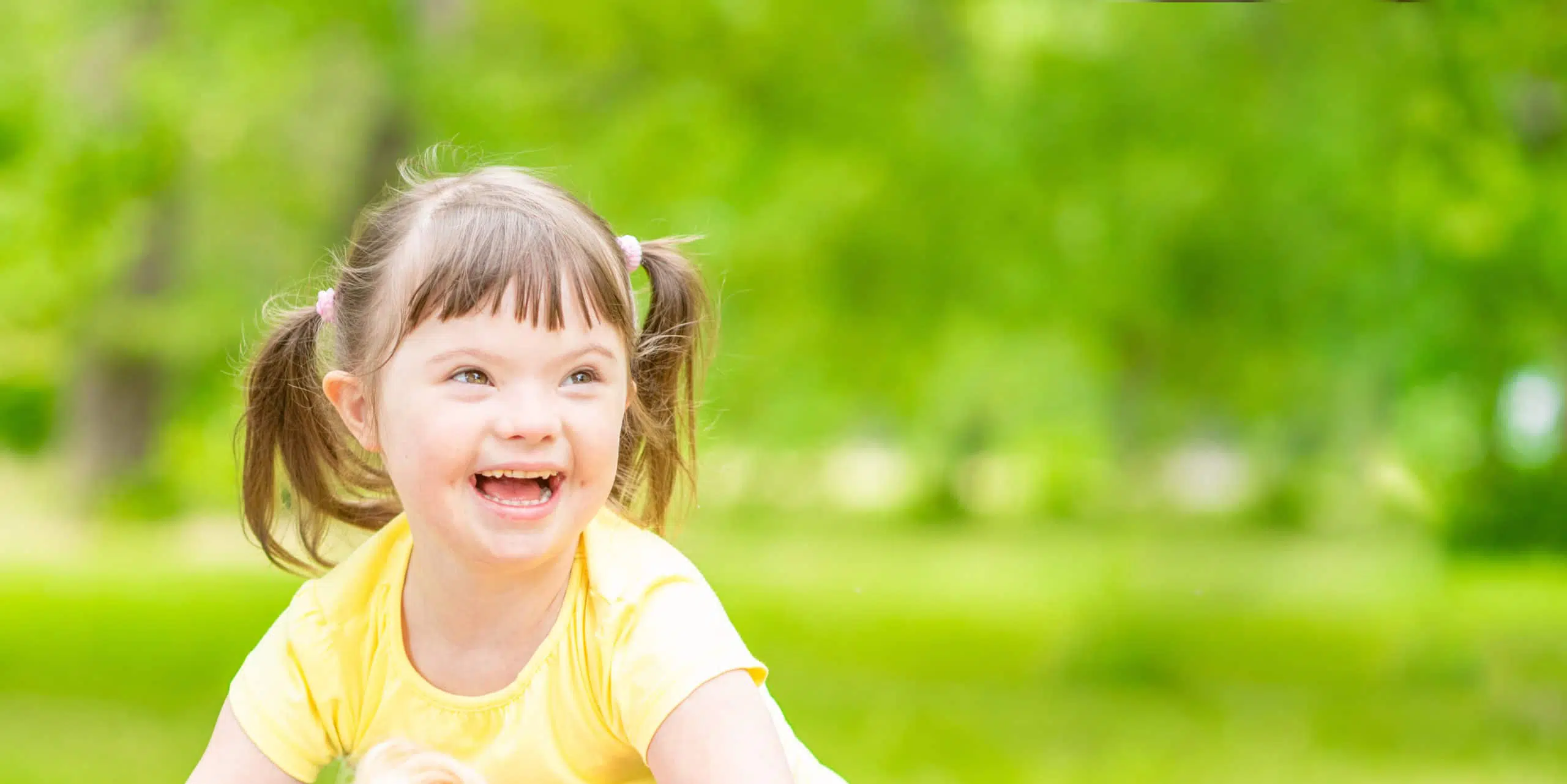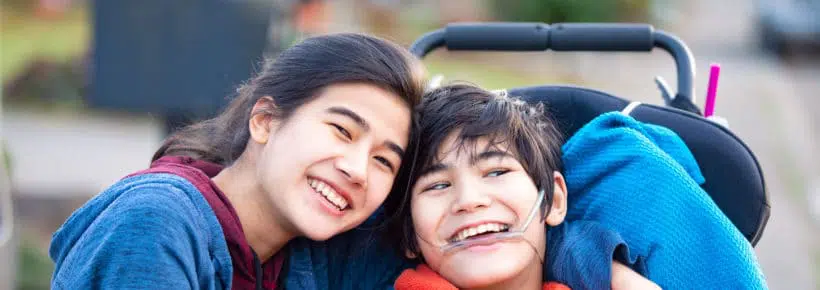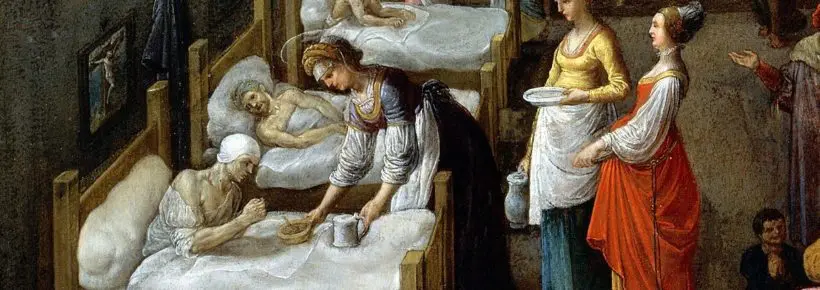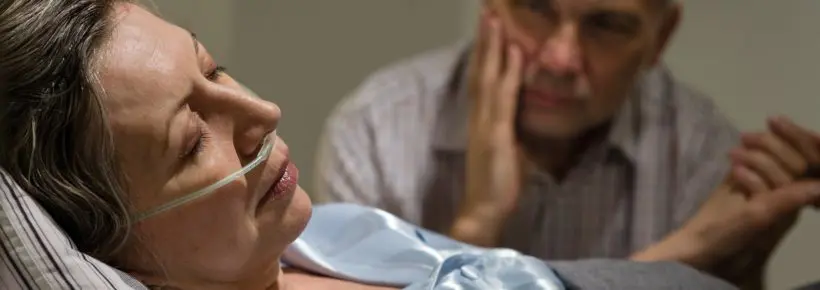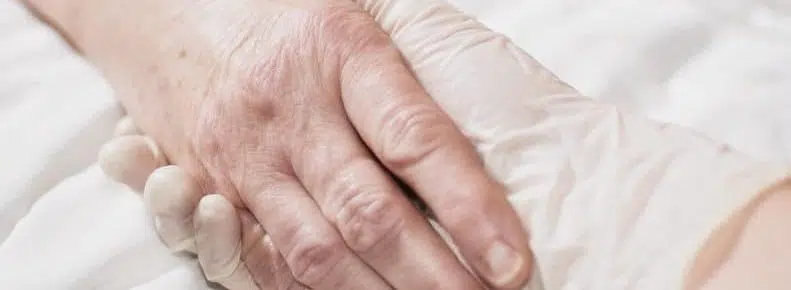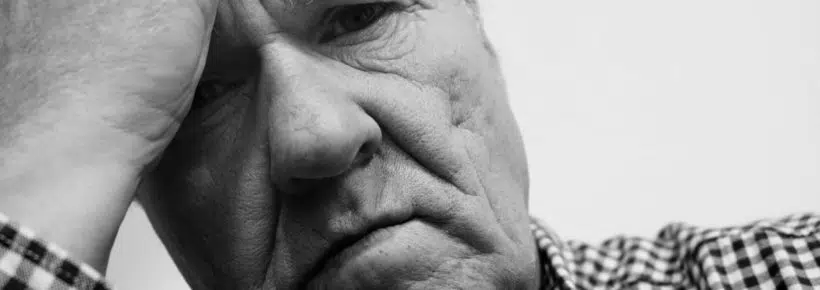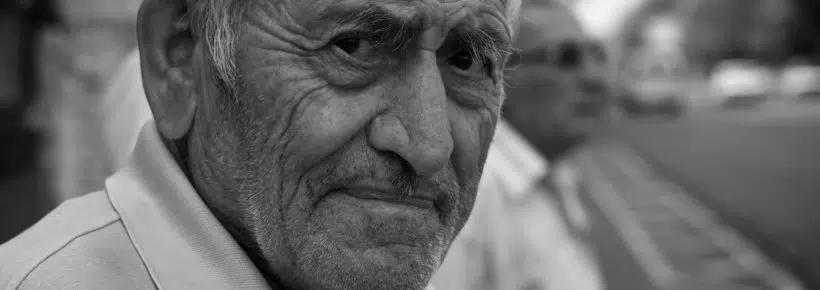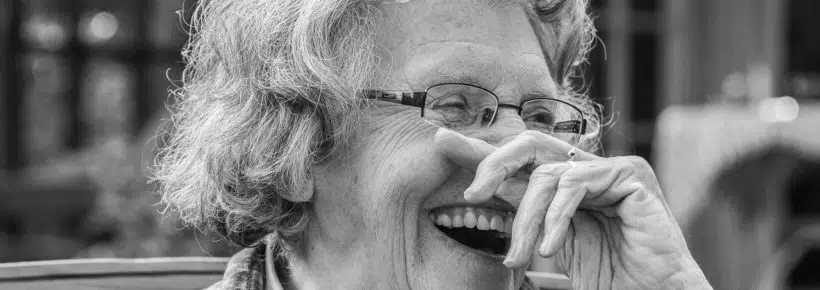Respect, compassion, care, kindness, empathy, and love. These actions come about when people recognize the inherent dignity in every person.
And nowhere is it more important to understand people’s inherent dignity than in a capacity where someone has to take care of another or provide for his well-being. This occurs most often in the medical field.
With advances in medicine and with the secular world inserting its beliefs into all walks of life, there has never been a more crucial time to ensure that people are lovingly cared for. The moral care and treatment of people falls under the category of bioethics.
According to Merriam-Webster, bioethics is “a discipline dealing with the ethical implications of biological research and applications especially in medicine.”
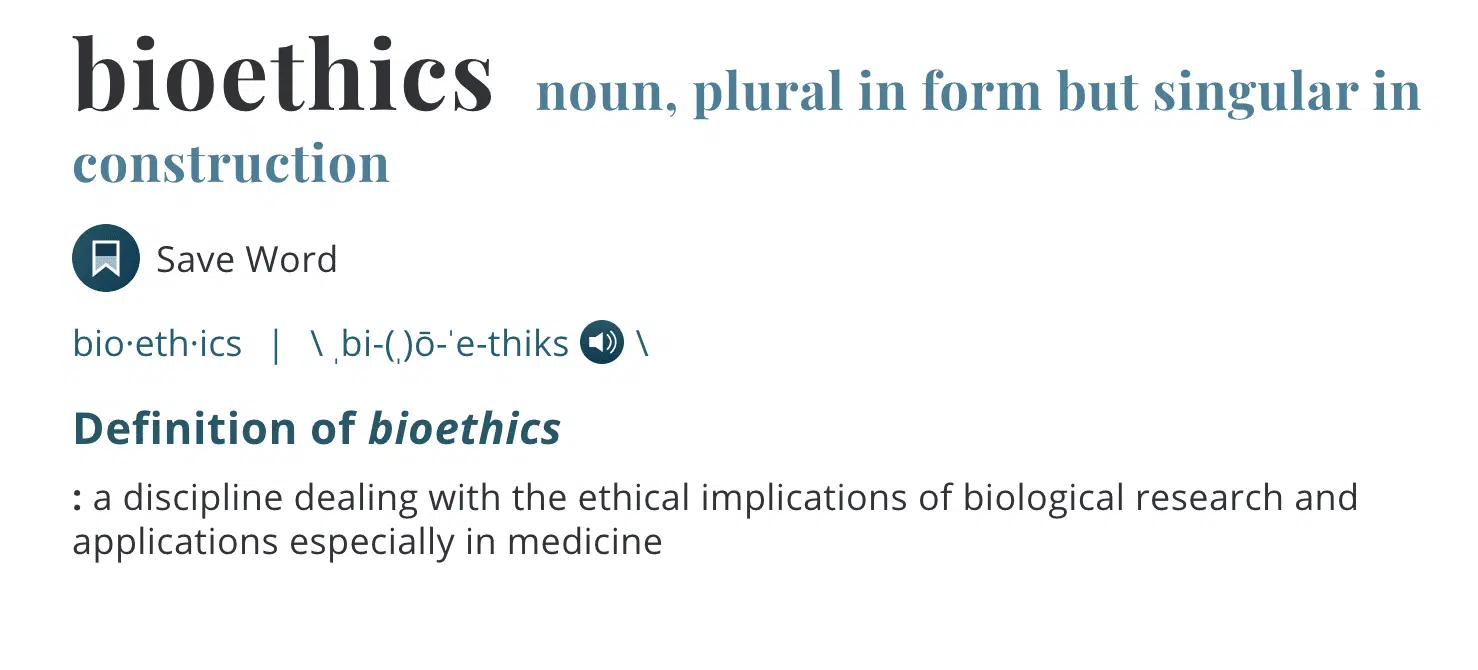
Merriam-Webster’s definition
Bioethicists ask questions such as: What is my obligation to my fellow human being? What is the right and good thing to do for another? Who am I responsible for?
Catholic bioethics answers those questions. It teaches that our obligation is to help our fellow human beings feel valued and loved. It teaches that we must treat others with compassion. And it teaches that we are all responsible for each other.
Rooted in faith and reason, Catholic bioethics blends the fields of theology, philosophy, history, nursing, law, and more. It is comprised of teachings that have their origins in scripture, in papal encyclicals, and in the writings of Catholic philosophers and theologians. It stresses respect for human beings. It stresses their inherent dignity. It recognizes the fact that a person is comprised of both a body and a soul. And it applies the principal of totality.
Principle of Totality
This teaching comes in part from St. Thomas Aquinas, who blended the philosophy of Aristotle with Catholic theology. He taught that every part of a person—all of his internal organs and each of his body parts—exists for the sake of the person as a whole.

St. Thomas Aquinas
Thus, any action that hurts a part of the body or any action that prevents a body part from doing what God created it to do naturally is morally wrong.
This article will discuss the top five bioethical issues of today:
- End-of-life decisions
- Reproductive technologies such as IVF
- Genetic testing
- Sexuality
- Treatment of the elderly, sick, and disabled
In each of these areas, we see that respect for the human being can either be upheld or squandered.
By examining each of these issues, we come to realize why we must see the dignity in each person. We come to understand what the Church means when it teaches us to value each person. And we come to grasp the necessity of applying and upholding the basics of Catholic bioethics.
1. Death and Dying
Those who are sick or nearing the end of their lives must be cared for with great love and compassion. Their treatment should reflect the fact that the doctors, nurses, and other caregivers value their patients’ lives.
No one should ever hasten death. It is not for us to decide the moment someone dies.
Yet that is what euthanasia and assisted suicide do. These means of hurrying death are grave evils, but sadly, eight states and Washington, DC, have laws allowing doctors to prematurely take a life.
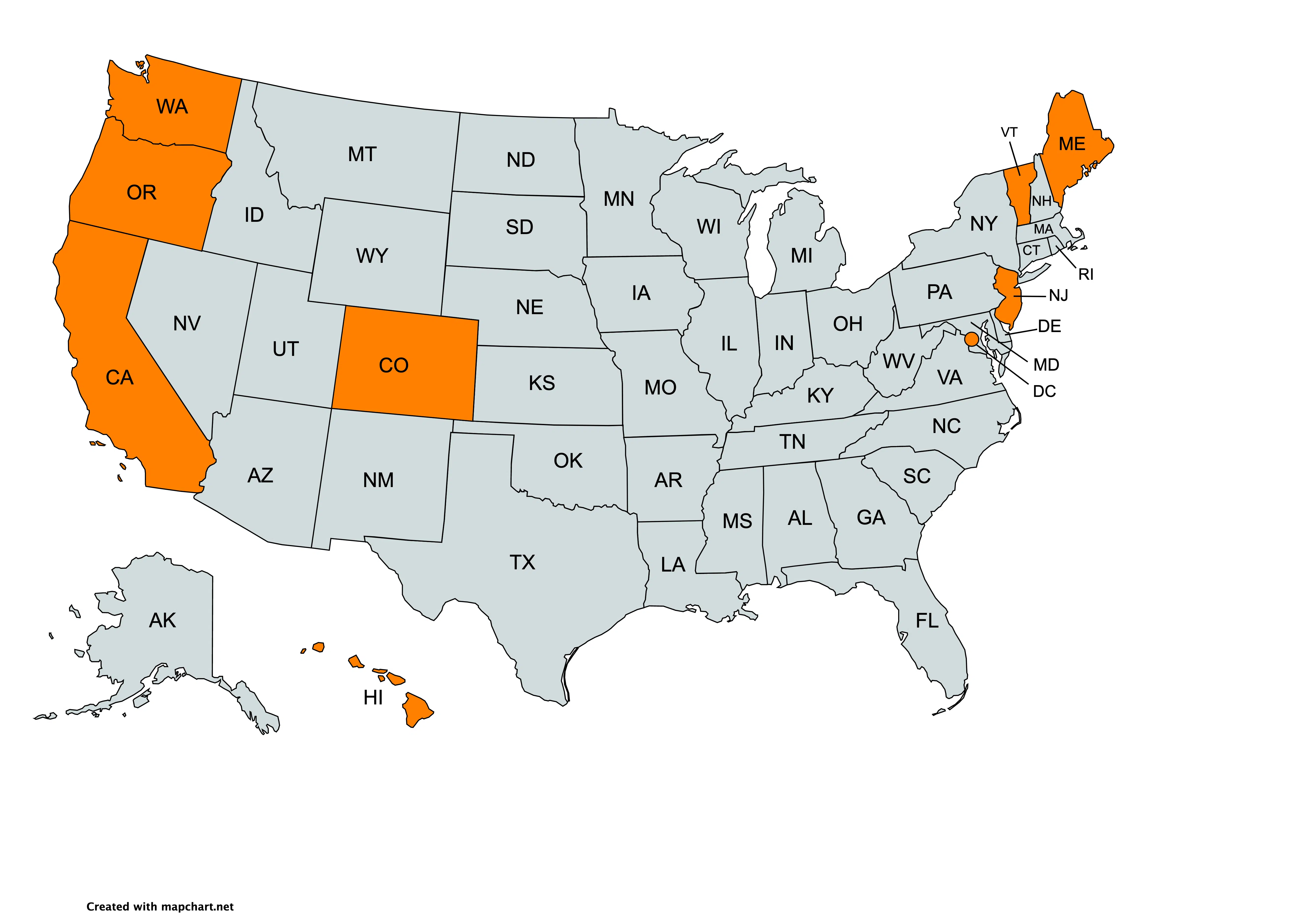
States that have legalized euthanasia
There are groups and people within the medical community who promote this hastening of death. They call it “death with dignity.” By using that term, they imply that there is something inherently wrong with being sick, elderly, or disabled. As a result, people feel like burdens. They begin to think that their families would be better off without them, believing the lie that they would be better off dead.
But we all have dignity; it’s inherent within us. No illness or disability can take it away.
Furthermore, we do not need to die to retain our dignity. Dignity does not degrade the older or sicker a person gets.
We also frequently hear the term “quality of life.” There are some who believe that a person who has lost even basic abilities has no reason to live. However, they do not understand that all human beings have value—no matter what they can or cannot do. They have value because they are children of God and made in His image.
In the summer of 2020, the Congregation for the Doctrine of the Faith put out a letter called Samaritanus Bonus. This letter deals with the “care of persons in the critical and terminal phases of life.”
In part, the letter states: “Every individual who cares for the sick (physician, nurse, relative, volunteer, pastor) has the moral responsibility to apprehend the fundamental and inalienable good that is the human person. They should adhere to the highest standards of self-respect and respect for others by embracing, safeguarding and promoting human life until natural death.”
And further: “Every sick person has the need not only to be heard, but to understand that their interlocutor ‘knows’ what it means to feel alone, neglected, and tormented by the prospect of physical pain. Added to this is the suffering caused when society equates their value as persons to their quality of life and makes them feel like a burden to others.”

Catholic bioethics ensures the loving treatment of those nearing the end of their lives and that their death is never hastened.
See Also:
2. In Vitro Fertilization
A child is an amazing gift from God. And when people cannot physically create a child, they’re often devastated. When this happens, the secular world pushes assisted reproductive techniques such as in vitro fertilization. IVF is a procedure in which an egg is fertilized by sperm in a lab.
But the Church teaches that IVF is immoral. Why? There are several reasons.
- First, the Church teaches that children have the right to be created through love within the marital act. Creating them in a laboratory setting makes them a commodity.
- Another reason that IVF is immoral is because usually more than one embryo is created. The “extras” who are created are either frozen, discarded, or used for experiments. In other words, they die or are left in a frozen state indefinitely.
- Further, if several embryos are created in the lab and implanted in the mother’s womb, she may find that multiple babies have continued to grow. She might decide that she does not want so many. Thus, she has one or more aborted. Doctors call this selective reduction. But we know this is just a euphemism for killing a baby.
- Finally, oftentimes and for various reasons, donor eggs or sperm are used. This means that the biological mother or father is not a part of the marriage. Nor is he or she a part of the family unit created. This can lead to a whole host of problems, questions, and difficulties as the child grows and wants to know about his real mother or father.
In 1987, the Sacred Congregation for the Doctrine of the Faith issued a document about respect for human life called Donum Vitae. According to the USCCB, this document states that “people can do harm to themselves and others even as they try to do what is good, that is, overcome infertility.”
The Church understands the anguish of couples trying to conceive. But that anguish does not supersede the disrespect for life and the harm that can come from IVF.
Yet, for couples who have difficulty conceiving, there is hope. The Saint Paul VI Institute has helped thousands of women conceive. Through its NaProTECHNOLOGY and the Creighton Model FertilityCare System, women learn to work with their bodies in a way that respects all life.
Here we see that Catholic bioethics has taken a potentially harmful situation and found a way to respect life.
See Also:
3. Genetic Testing and Screening
One of the most exciting parts about pregnancy is getting to see the baby on the sonogram. Parents proudly look on as their baby moves around, sucks his thumb, and makes faces. It’s the parents’ first glimpse into their growing family.
But sometimes, through sonograms and genetic testing, parents get the devastating news that something is wrong with their baby. This can often help them learn to cope with the news and find resources to assist them…or it can be a death sentence for the child.
The National Catholic Bioethics Center tells a tragic tale:
Kaiser Permanente, a large managed health care organization, offered a disturbing statistic regarding prenatal testing in a 2004 New York Times article. When their members in northern California tested their unborn children for cystic fibrosis, some of them tested positive. Of those parents who received a positive test result, a full 95 percent terminated their pregnancies.
That mentality of not wanting a baby with health problems remains today.
We see it in the termination of babies prenatally diagnosed with Down syndrome. According to the Tennessean, “Though reliable data is scarce, the best calculations suggest that 67% of U.S. pregnancies where it is suggested the baby would be born with Down syndrome end in abortion.”
In other countries, this number is tragically higher. According to the Life Institute, 90% of babies in Britain who are diagnosed with Down syndrome are aborted. In Denmark, this number jumps to 98%. And in Iceland, nearly 100% are aborted. In that country, from 2008-2012, every single baby diagnosed with Down syndrome was aborted.
So, while advances in medicine can help parents prepare themselves, they can also scare parents into failing to respect the lives of their babies. But with Catholic bioethics, we can see the value in all babies—not just the ones who are born without any problems or difficulties.
See also:
4. Sexuality and Mutilation
Barring a chromosomal abnormality, human beings are either male or female. Yet, today, there is a push to normalize the desire for people to change which sex they are if they feel that they do not “fit” in the body God gave them.
Through a “sex change” operation, a person can have his genitalia altered. But that does not change whether that person is male or female. Even taking hormones does not change that fact. An operation will change outward appearances. Hormone therapy will change the way parts of the body work. But neither of these actually changes the person’s sex.
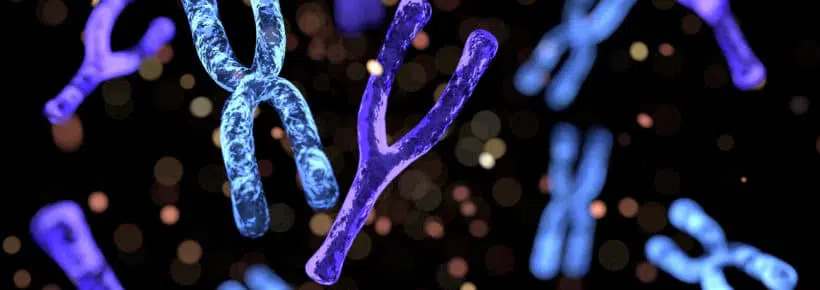
Sex-change surgery cannot change sex, which is determined by X and/or Y chromosomes
According to the National Catholic Bioethics Center:
A person cannot change his or her sexual identity. For persons not suffering [genetic] disorders … (e.g., hermaphroditism) a person is either male or female. A person is the unity of soul and body, and “soul” should be understood not as an immaterial self, but as that which makes the body be what it is, namely, a human person. We are either male or female persons, and nothing can change that. A person can mutilate his or her genitals, but cannot change his or her sex. Changing one’s sex is fundamentally impossible; these procedures are fundamentally acts of mutilation.
And that’s what a “sex-change” operation is. It is the mutilation of a body. Remember the discussion about Aquinas? He taught that we must care for the whole body. He taught that any action taken to make the body do something unnatural is immoral. Doctors who allow the mutilation of a body by performing a “sex-change” operation are violating Catholic medical ethics.
The NCBS states:
Doing violence to one’s body when there is nothing wrong with it is an unjustifiable mutilation. Furthermore, seeking such a mutilation manifests a self-hatred inconsistent with the charity we owe to ourselves. Persons seeking such operations are clearly uncomfortable with who they really are. Loving such persons properly demands addressing the beliefs and self-understanding that give rise to this fundamental rejection of self.
Indeed, when someone is uncomfortable in his or her body, Catholic bioethics demands that we care for the whole person. We examine the reasons. We look at family history. We look at medical history. We counsel. And we attempt to heal. But we do not mutilate.
Furthermore, many people who have had these operations find that they don’t solve the underlying problem. According to HLI’s Brian Clowes: “Many transgender patients have said they realized, too late, that ‘sex change’ operations did not live up to their lavish promises, and that the negative side effects were deliberately withheld from them.”
A treatment rooted in Catholic bioethics would serve and care for the whole person. It would never mutilate.
See also:
5. Disability Issues
Those who have disabilities or have children with disabilities know all too well that discrimination exists in the medical field. Family members often struggle to find proper treatment. Their needs are sometimes dismissed or belittled, while the healthy and young are prioritized.
The family may even have to fight for the most basic treatments for a loved one who is suffering. Catholic bioethics teaches us that, while extraordinary treatments are not morally required, withholding certain treatments is morally wrong. These include food and water.
According to the USCCB:
While medically assisted nutrition and hydration are not morally obligatory in certain cases, these forms of basic care should in principle be provided to all patients who need them, including patients diagnosed as being in a “persistent vegetative state” (PVS), because even the most severely debilitated and helpless patient retains the full dignity of a human person and must receive ordinary and proportionate care.
Yes, “even the most severely debilitated and helpless patient retains the full dignity of a human person.”
Our dignity is given to us by God when we are created. It does not suddenly arrive at birth. Further, we do not lose dignity as we grow old. We do not lose dignity if we become sick or disabled. We do not lose dignity if we have a false sense of who we are.
Final Thoughts
In all of these situations, human beings require love, compassion, mercy, and kindness. And in all of these situations, we see the need for the standards of Catholic bioethics.
We must make an effort understand not only these issues but also the Church’s response to them. This is important because we are all an integral part of the Church, and as such, we must defend her. Just as Christ charged His Apostles to go out and teach all nations, we are charged with upholding the sanctity of life and caring for our fellow human beings.
We cannot do this if we do not understand how to do this. That is why we must learn to allow the tenets of Catholic bioethics to lead us toward loving and caring for the whole person, no matter his stage of life.
As our secular world embraces the culture of death, we must always work toward the restoration of a Culture of Life.
Related Content
Susan Ciancio has a BA in psychology and a BA in sociology from the University of Notre Dame, with an MA in liberal studies from Indiana University. Since 2003, she has worked as a professional editor and writer, editing both fiction and nonfiction books, magazine articles, blogs, educational lessons, professional materials, and website content. Fourteen of those years have been in the pro-life sector. Currently Susan writes weekly for HLI, edits for American Life League, and is the editor of its Celebrate Life Magazine. She also serves as executive editor for the Culture of Life Studies Program, an educational nonprofit program for k-12 students.


